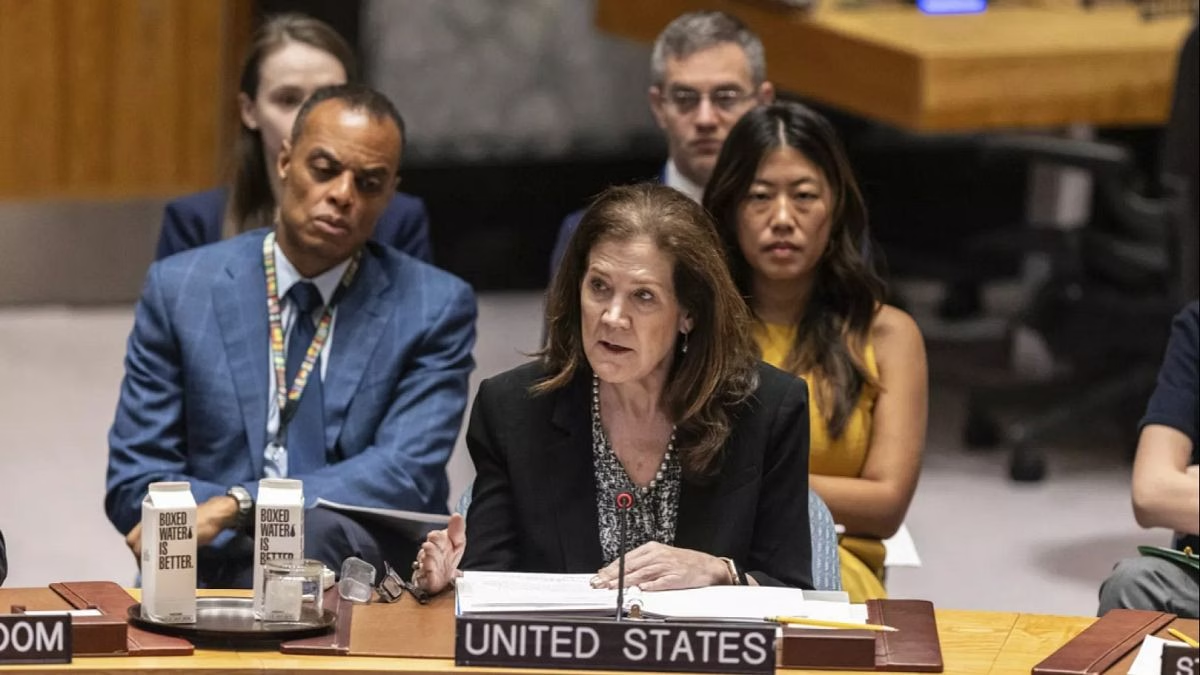
ADVERTISEMENT
On Thursday, a UN Security Council resolution advocating for an immediate and permanent ceasefire in Gaza and the release of captives faced a veto from the US, with the justification that the resolution failed to sufficiently condemn Hamas and acknowledge Israel’s right to self-defense.
This resolution, backed by the other 14 members of the UN’s most powerful body, urged Israel to lift all restrictions on relief deliveries to the 2.1 million Palestinians in Gaza, characterizing the humanitarian situation as “catastrophic.”
In the lead-up to the vote, Morgan Ortagus, a senior U.S. policy adviser, argued, “It fails to condemn Hamas or recognise Israel’s right to defend itself, and it wrongly legitimises the false narratives benefiting Hamas, which have sadly found currency in this council.”
She contended that other council members disregarded US warnings about the “unacceptable” language and instead opted for “performative action designed to draw a veto.”
Palestinian ambassador to the UN, Riyad Mansour, acknowledged the disappointment and frustration felt by the Palestinian people over the lack of assistance from the UN. “I can understand the anger and frustration … that it did not happen,” he stated.
The vote’s timing was significant, coming just before the annual UN General Assembly meeting, where the situation in Gaza is expected to be discussed and where major US allies are likely to acknowledge an independent Palestinian state – a move opposed by Israel and the US.
Furthermore, the US veto occurred amidst growing American sentiment that Israel’s military response in Gaza has “gone too far,” according to a survey by The Associated Press-NORC Center for Public Affairs Research.
Indirect Linking of Ceasefire to Hostage Release
The resolution, initiated by the 10 elected members of the council, emphasized the worsening conditions for Palestinian civilians and the need for the release of all hostages held by Hamas and other groups following their attack on southern Israel on October 7, 2023.
Since November, the US had consistently opposed similar resolutions, arguing that calls for a ceasefire should be directly linked to the unconditional release of hostages and not seen as an encouragement to Hamas.
The resolution also expressed deep concern over a recent report describing Gaza City as facing famine, with the risk of this spreading without a ceasefire and the easing of restrictions on humanitarian aid.
The ongoing Israeli ground assault in Gaza City, initiated to “destroy Hamas’ military infrastructure,” further complicates the prospects for a ceasefire, with no clear timeline for the operation’s conclusion.
Analysts view Thursday’s vote as highlighting the international isolation of the US and Israel over the conflict in Gaza. The UN General Assembly recently voted in favor of a two-state solution, urging Israel to recognize a Palestinian state.



